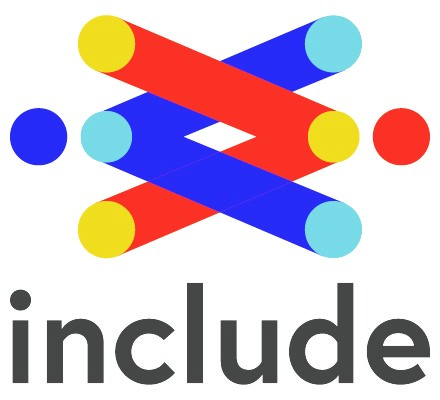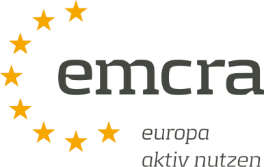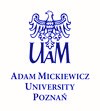INCLUDE Project

Name of the project: Inclusive Leadership in the Digital Age
Acronym of the project: INCLUDE
Programme: Erasmus+, Key Action 2: Cooperation for innovation and the exchange of good practices, Action type: Strategic Partnerships for vocational education and training
Main Funder: Erasmus+ National Agency - Bildung für Europa beim Bundesinstitut für Berufsbildung
Agreement No: 2019-1-DE02-KA202-006246
ABOUT THE PROJECT
The aim of the two-year EU project (2019-2021) INCLUDE is to support SMEs, SMOs and start-ups in the day-to-day challenges of digital change with a contemporary, inclusive leadership approach.
Therefore, the project will develop learning and teaching materials for managers and for persons who want to or should take on more responsibility.
With these materials, managers can, on the one hand, learn "inclusive leadership in the digital age" step by step while working and apply it directly in their day-to-day business (work-based learning approach). On the other hand, training providers and freelancers from the vocational education and training field can use the materials and a sample curriculum for further training courses for the target group.
The INCLUDE project, which is funded within the framework of a "Strategic Partnership" in the EU programme "Erasmus+", aims to increase the competitiveness of European SMEs, SMOs and start-ups by establishing an inclusive management approach that takes into account the opportunities and risks of the digital transformation. For the individual learners, the learning and teaching materials represent an opportunity to develop or increase their own skills in a field of activity that is highly relevant to the labour market.
MAIN PROJECT RESULTS
- Process Model: shows in an understandable way how the introduction of a new inclusive leadership approach within the context of digital transformation in a SME, SMO or startup can be systematically successful, one step at a time.
- EQF Curriculum: a curriculum in accordance with the European Qualifications Framework, showing in a structured and understandable way what inclusive leaders must know and be able to do if they are to independently and responsibly solve the problems and challenges through digital transformation in their company, together with their colleagues and/or employees.
- Handbook: provides the target group with teaching and learning materials for applying a new and modern leadership approach.
- Email Course: conveys the most important aspects of IO2. It will consist in at least 12 learning units automatically sent in separate e-mails, so that users receive a low-threshold entry opportunity into the topic “inclusive leadership in the digital age”.
PROJECT NEWSLETTER
PROJECT PARTNERS
emcra GmbH (Lead partner)
https://www.emcra.eu/startseite/
emcra GmbH is a leading training and consulting company in the areas of national and European funding, as well as international project management. Since 2002 organisations, societies, associations and public institutions have profited from the specialist expertise of emcra’s international team.

Chamber of Commerce and Industry Vratsa Sdruzhenie (CCI)
https://www.cci-vratsa.org/en/home/
The Bulgarian Chamber of Commerce and Industry Vratsa (CCI) is a non-governmental organisation governed by public law. Founded in 1991, CCI is established in three locations across North West Bulgaria and assists more that 3,000 organisations. CCI is founded on a representative merging of organisations and institutes with the goal of promoting the interests of the local economy and thereby contributing to the socio-economic development in the district of Vratsa and the surrounding region in North West Bulgaria.

Cyprus Project Management Society
The Cyprus Project Management Society (CPMS) is a non-governmental organization from Cyprus, which promotes the implementation of project management’s international standards and techniques. Furthermore, the CPMS participates together with other international organizations in the research on project management.

Institute of Business Consulting, Business Development and Business Research e.V. (IBWF)
https://www.mittelstandsberater.de/
The Institute of Business Consulting, Business Development and Business Research e.V. (IBWF) is, headquartered in Berlin, the largest multidisciplinary consulting network for the SMEs in Germany. The approximately 500 members are business consultants, lawyers and accountants. The main task of the institute is to provide SMEs with qualified SME-consultants.

Craftsmanship Association of South-Tyrol (LVH)
The Craftsmanship Association of South-Tyrol (LVH) is, with approximately 8000 members, the largest craftsmanship association in the Italian province of South-Tyrol. The main task of the organization is the representation of local artisans to authorities and other associations. The sub-organization "LVH Service and Education" concentrates its action on the planning and implementation of training courses.
![]()
EU-Fundraising Association e. V. (EUFA)
The EU-Fundraising Association e.V. is a European-wide network of people, organisations and companies that are active in the field of national and European public funding and project management. As a professional association, the EU Fundraising Association establishes quality standards for EU fundraisers, financial managers and project managers from the profit and non-profit sector.
![]()
Adam Mickiewicz University, Poznan (AMU)
The Adam Mickiewicz University, Poznan, Poland (AMU) is the largest academic institution in Greater Poland (Wielkopolska region) and one of the leading Polish universities. The university has existed for 100 years and looks back on a long tradition of higher education in the city of Poznań. With around 3,000 lecturers and almost 40,000 students, the Adam Mickiewicz University, Poznan is one of the largest academic centers in Poland.

Disclaimer:
This project has been funded with support from the European Commission. This publication (communication) reflects the views only of the author, and the Commission cannot be held responsible for any use which may be made of the information contained therein.

